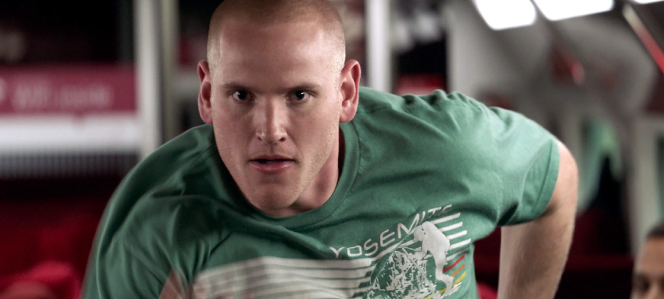Clint Eastwood’s new film The 15:17 to Paris is not your typical action movie; in fact, it’s really not a typical movie at all.
The film is about the attempted terror attack by a single perpetrator on the Thalys train from Amsterdam to Paris in 2015. Four people were injured but no one was killed, largely due to the heroic efforts of three American friends—two of whom were off-duty members of the military— to subdue the attacker, treat another passenger’s gunshot wound, and generally get the situation under control.
In a risky move, Eastwood decided to have the actual men who intervened in the attack—Spencer Stone, Alek Skarlatos, and Anthony Sadler—play themselves.
What’s more, until the attack itself (an incredibly tense and well-executed scene), the majority of the film is about the ordinary lives of these ordinary men. From their troublemaking days in a Christian school right up to the sightseeing trip that brought them to Europe, the story tells the truth about their lives, and the truth is that there was nothing all that dramatic about them. They get sent to the principal’s office; they struggle with setbacks and humdrum duties in the military; and they drink beers and talk about sports. Their wandering through Venice and Amsterdam feels more like the work of Richard Linklater than Clint Eastwood: there’s wine and gelato, tourist attractions and bars, corny jokes and selfies, and the occasional conversation about being “catapulted” toward some greater purpose.
The movie has generally received a poor response from both audiences and critics, and the previews before the movie go a long way toward explaining why. There were about ten trailers of action and adventure movies, each one packed with A-list stars, explosive action, and deafening sound effects. The box this movie was put in and the movie that it really is are two very different things.
But taken on its own terms, The 15:17 to Paris is an uplifting meditation on the heroism of ordinary people. Its stubborn ordinariness, in other words, is precisely its power, and the casting of those ordinary guys as themselves only intensifies that power. For most of the movie, there’s probably as much showstopping dialogue and heartpounding action as there was in your day yesterday—and that’s precisely the point.
It’s also a beautiful commentary on how people sometimes stumble half-blindly right to where they’re meant to be. Little twists and turns in their journey that seem trivial at the time are, in retrospect, incredibly meaningful: they mysteriously lead Alek, Spencer, and Anthony to precisely this car for precisely this event.
But most of all, the film serves as a spiritual invitation to meet the world’s darkness, whatever form it takes, with the light of life. Early in the film, a young Spencer kneels by his bed and prays the peace prayer of St. Francis:
Lord make me an instrument of your peace
Where there is hatred let me sow love
Where there is injury, pardon
Where there is doubt, faith
Where there is despair, hope
Where there is darkness, light
And where there is sadness, joy…
For it is in giving that we receive
it is in pardoning that we are pardoned
And it’s in dying that we are born to eternal life
Amen
After the attack on the train, he recites the prayer to himself once more. These three average guys manifested the reality of this prayer in a very visible way, sowing peace and healing in a situation that was barreling toward hatred and destruction. But the prayer casts a wide net. Darkness manifests itself a thousand times a day in a variety of forms, most of them as ordinary as the people involved. We may not ever find ourselves in such an extraordinary situation, but we can always rise up to everyday darkness in much the same way: with mental clarity, decisive action, and the lights of virtue and holiness.
The former President of France François Hollande said that what Alek and his friends did that day “incarnated” human goodness. Clint Eastwood’s movie set itself the humble goal of reflecting on the ordinary steps that led to those good actions. And it’s a remarkable gift.
